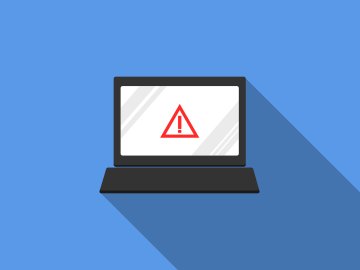With computer viruses being so common, it can be confusing to know what type of attacks can occur and how they all differ to one another. Malware is so damaging because it can manifest in various forms; attacking our devices in different ways. You are probably familiar with some of the different types of malware but here is a breakdown of what you need to know in order to protect your business.
What is malware?
The dictionary definition of malware is ‘software that is specifically designed to disrupt, damage, or gain unauthorized access to a computer system.’ Here’s another good way of thinking about it; malware is a shortened version of the term ‘malicious software’.
It can infect a computer in a number of different ways but is often caused by users clicking on suspicious links, downloading or installing untrustworthy apps or programs from the internet or via emails.
Malware can cause considerable amount of disruption and damage to your devices which can also result in data and sensitive information being compromised. For businesses, malware can have a disastrous impact. Research from Sophos found that 37% of businesses were victim to a Ransomware attack. As well as this, it was estimated in 2021 that the average cost to rectify an attack was £2.9 million..
What types of malware are there?
Some of the most common types of malware that could pose a risk towards your business include:
- Ransomware: Software that encrypts or blocks your data until a sum of money is paid
- Adware: Software that displays unwanted or hard to close ads by tracking online activity
- Spyware: Software that transmits user activity/ data to the attacker without knowledge
- Trojan Horse: Software that appears legitimate, but once downloaded gains control
- Keylogger: A program that records keyboard activity in order to determine passwords etc
- Botnet: Various infected devices that are controlled by the attacker without knowledge
- Virus: Harmful code that replicates by attaching to programs or files and then spreading
- Worm: Software that self-replicates to infect devices without user interaction
How do I protect against malware?
The essential practice around protecting yourself against malware is to be vigilant and always think twice before clicking or downloading anything that looks suspect. Always question the source and ensure you are keeping devices consistently updated. Attackers are incredibly savvy so it is up to us to make sure we are one step ahead. Try and educate your business and staff around safer internet use and promote the same vigilance you yourself would incorporate when managing devices.
If you need assistance with cyber-security we offer the latest software from Bitdefender that can protect against viruses and other types of cyber-attacks. As well as this, you can also get bespoke cyber security training from Mimecast alongside software to protect your emails.
Make sure you are doing everything you can to protect your business! Discover more security guidance and information from Edtesa Secure!






